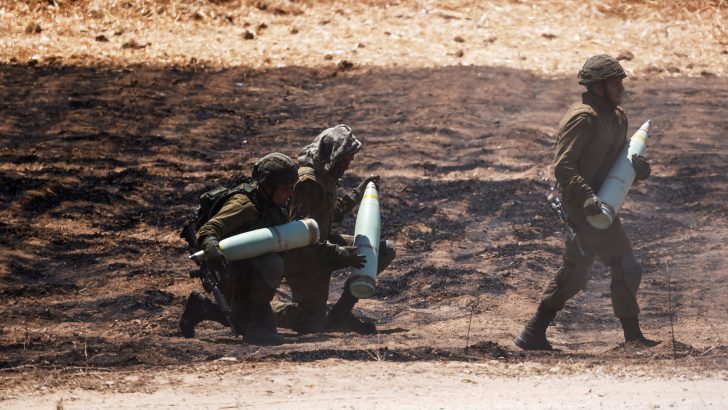The issue of the homeless got something of extra profile when Covid-19 kicked off, with extra efforts being made to make sure they had shelter and protection. It showed we could move on the problem when there was enough motivation.
On Times Radio Breakfast last Saturday morning presenter Jenny Kleeman covered an aspect of homelessness that doesn’t often get an airing – what the homeless do with their minimal possessions. The charity Street Storage provides secure, free and accessible storage in London. Ms Kleeman appropriately started by interviewing a homeless man who welcomed the facility to store important items, especially clothes and documents. Founder Rachel Wolfe explained how she hoped to expand the initiative to other British cities. She got all sorts of unusual items to look after and as a matter of security and dignity everything was itemised and photographed so that everything could be returned correctly.
Earlier on the show Ms Kleeman and co-presenter Ayesha Hazarika explored the current flare up in the Middle East, a situation, like homelessness, we always seem to have with us. Last week’s news coverage was grim, especially with the inter-community violence between Israelis and Palestinians living in the same areas, and of course the awful deaths of children in bomb and rocket attacks. Too often in the media it’s either pro-Palestinian or pro-Israel, with sides being taken when an across the board disgust and even-handed peace effort would have more chance of a better outcome. Ms Hazarika explained that she was Muslim while Ms Kleeman was Jewish but they weren’t going to take entrenched positions based on their ethnic heritage. Middle East expert Michael Stephens and Israeli-Palestinian negotiator and columnist Gershon Baskin teased out the historical and political background, a useful exercise in providing context. One thing that galled me was the amount of money being spent on all these bombs and rockets – such a scandalous waste when there is so much poverty, and indeed fresh homelessness created by the destruction. In fact, the right to homes and a homeland is partly the source of the conflict.
Objectivity and even handedness has not always been a hallmark of coverage of the election of Edwin Poots as leader of the Democratic Unionist Party (DUP). The mainstream news coverage I heard was factual enough but on Andrew Pierce on UK radio station LBC last Friday the host was scathing about Mr Poots, regarding him as having “bigoted views” (he’s socially conservative). His guest Sean Woodward, former Secretary of State for Northern Ireland, was more nuanced. There’s an attitude which has marked and marred coverage of the North recently, with the notion being pushed that promotion of abortion, even over the heads of the people of Northern Ireland, is somehow progressive. I fail to see how taking away people’s right to be born is even remotely progressive.
Myanmar, formerly Burma, is another of the world’s conflict zones and seems nearly as intractable as that in the Middle East. Unreported World (Channel 4, Friday) returned last week for a new season with a short but hard-hitting documentary on the upheaval in that country. Unusually, instead of the team making it, they accepted a film from someone local who was taking quite a risk as journalists have been targeted since the military coup. Hopefully Channel 4 did due diligence and verification as journalistic objectivity and integrity were at stake. That being said the picture being presented showed an oppressive military using excessive force, sometimes fatal, in quelling peaceful protests against the usurping of democracy. The film didn’t purport to be a comprehensive analysis but rather focused on young protestors in particular, especially a punk band singer and a young woman who was taking an informal but intense leadership role in the movement. It was good to hear the singer at one stage asking the protestors not to start a riot – “rioting and self-defence are not the same”, he declared.
Though many of the protestors’ banners featured deposed and democratic leader Aung San Suu Kyi, currently in some form of detention, I don’t recall one mention of her in the script or any concern expressed as to her whereabouts. Media coverage in general has also lacked any evident concern. Once a hero in human rights circles, she fell from grace because of Myanmar’s treatment of the Rohingya Muslims.
Nevertheless the silence about her is still deafening.
Pick of the week
Mass for Pentecost
RTÉ One, Sunday May 23, 11 am
A Eurovision broadcast of Mass on the feast of Pentecost from the medieval Swiss town of Saint Ursanne, on the banks of the River Doubs, in the mountainous Jura region. Commentary by Michael Kelly.
Maria Goretti
EWTN Sunday May 23, 9 pm
An Italian film on the life of St Maria Goretti. Despite growing up in poverty, Maria devoted herself to Christ, becoming one of the Church’s youngest martyrs.
Comhrá
TG4 Thursday May 27, 7.30pm
Fr Brian Ó Fearraigh has been the parish priest in Gaoth Dobhair in Donegal for nearly 20 years as well as the school chaplain in Pobalscoil Ghaoth Dobhair.


 Brendan O’Regan
Brendan O’Regan Members of the Israel Defence Forces (IDF) carry artillery shells in a field next to the border with the Gaza Strip. Photo: CNS
Members of the Israel Defence Forces (IDF) carry artillery shells in a field next to the border with the Gaza Strip. Photo: CNS 